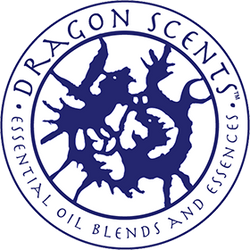Peppermint Essential Oil
What are the Health Benefits of Peppermint?
Peppermint is an invigorating, stimulating, refreshing, and cooling essential oil. Mostly known for its ability to aid in headaches and mental fatigue; Peppermint oil also works well for nausea, coughs, digestive problems, shock, travel sickness, mental tiredness, nervous stress, bad breath, poor circulation, and pain relief.
Peppermint oil is also a good insecticidal, meaning it is very good in the deterring of insects and rodents, not many critters like the smell.
This essential oil, alongside with Lavender, has many universal uses and benefits. Certainly, a must have in your essential oil collection.
.17fl. oz/5 ml

Peppermint Facts
- Latin Name: Mentha piperita
- Family: Lamiaceae syn. Labiatae
- Part Used: Leaves and flowering tops
- Extraction Method: Distillation
- Main Chemical Components: Menthol, Menthone, Iso Menthone, Menthofuran, Menthol Ester
- Blend Factor: 1 to 2
How do you use Peppermint Essential Oil?
- Diffusion: Use a few drops (1 or 2) in your diffuser
- Topical: Peppermint blends well with any carrier oil and blends well with many other essential oils complementary (See what Lavender blends well with below).
What are the Safety Precautions of Peppermint essential oil?
Peppermint could cause irritation if applied neat to the skin. Do not use in baths. Do not use while pregnant, or on children under seven years. Keep out of reach of children. If you are taking medication, or have a medical condition, consult a health professional prior to use. For external use only. Keep away from eyes and mucous membranes. Store in a cool dark place.
What does Tea Tree blend well with?
Basil, pine, lemon, geranium, rosemary, tea tree, lavender, eucalyptus (all), grapefruit, juniper, cypress, black pepper, niaouli, ravensara.
References:
Nerys Purchon and Lora Cantele (2014), The Complete Aromatherapy & Essential Oils Handbook for Everyday Wellness, 95.
Susan Worwood and Valerie Ann Worwood (1995, 2003), Essential Oil Aromatherapy. Pocket Guide to Essential Oils and Aromatherapy, 158.
Jade Shutes and Christina Weaver (2008), Aromatherapy for Bodyworkers, 321-322.
All products are shipped ground, unless otherwise specified. To arrange white-glove delivery, please include your phone number in the order notes section, and specify your interest in coordinating this free add-on.
Our products are only shipped within the United States.
Orders may be returned within 30 days of purchase if unopened, unless you've arranged to have used or damaged pieces return to customer support.
For additional questions please email us at info@dragonscents.com.






